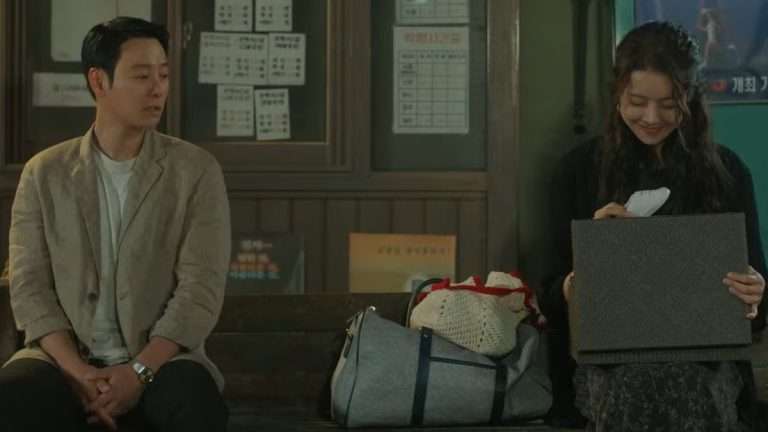You can always tell when a film is made with love, not the kind that asks for applause, but the kind that quietly stays in your chest. “Songs of Paradise” is proof of that. It is both a balm and a bruise, gentle one moment and quietly aching the next. The film awakens something deep inside you, a quiet fire, a long-forgotten passion. It feels like someone holding a memory softly and asking you to hold it with them.
Loosely inspired by the life of Kashmir’s Nightingale, Raj Begum, the film follows Zeba Akhtar, a gifted and closeted musician who hides her voice beneath the weight of what society expects from women. In Kashmir, a woman’s song is usually a lullaby, something sung in kitchens to hush children to sleep. The idea of her voice echoing across valleys or radio waves has long been seen as something improper, even threatening. Yet Zeba dares to dream beyond those walls.
Guided by her Ustad, she becomes the first woman to sing in a Radio Kashmir competition, stepping into a world that does not quite know how to receive her. To protect herself from gossip and judgment, she performs under the name “Noor Begum.” It is more than a stage name; it is a form of armor. It hides her face, perhaps, but never her voice. “Songs of Paradise” captures this transformation with care, from fear to courage, from silence to song, from hiding to being seen.
It still surprises me how little this film is talked about. You rarely hear it mentioned, but the few who do speak of it with real affection. Maybe that is how some films are meant to live, quietly, waiting for those who are meant to find them. They become personal. You go back to them not for spectacle but for how they made you feel. I am grateful I found this one.
What “Songs of Paradise” does best is its visual storytelling. Every frame feels alive. You almost feel as though you could walk into it and find yourself in the valleys of Kashmir. You see the mountains, but you also feel them, their patience, their silence, their ancient stillness. You can almost smell the faint trail of itra in the air, the steam of kahwa on a cold morning, the warmth of a kangri pressed beneath a pheran. Each scene reminds you why this land is called Paradise.
Light behaves like memory here. It falls across Noor Begum’s eyes, filters through stained glass, and rests on instruments and skin. Every image feels steeped in luminous color, like a recollection that refuses to fade. Even in the quietest moments, her presence fills the frame. When everything else goes still, Noor Begum’s voice remains.
Also Read: The 10 Best Indian Movies of 2025 (So Far)
And the soundtrack is a gift. I do not speak the language, but music has its own way of crossing borders. When a melody finds you, it becomes yours. The songs linger long after the film ends. The compositions are tender, aching, and sincere. The music team deserves every bit of praise for the life they breathe into these melodies. A few of the songs have already joined my playlist. There is no rush to impress, no ornamental flourishes, only feeling.
Technically, “Songs of Paradise” is exquisite. Yet its soul belongs to Saba Azad. I do not think the industry quite knows what to do with her. Here she is luminous. Every glance, every hesitation feels alive. You can sense her longing, her restraint, her quiet cry for freedom. Even when pronunciation falters or cultural detail blurs, her sincerity makes it irrelevant.
She plays Zeba with a tenderness that feels rare. Nothing is exaggerated or performed. It is honest, raw, human. The way she guards her voice before releasing it, the way she looks at the world as if it could either carry her or crush her, all of it feels deeply lived in. She gives the role purity and truth. The rest of the cast carries that same sincerity. No one tries to outshine anyone else. You can feel that every actor believes in the story and wants to honor it. The film never feels like a competition for attention. It feels like a collective act of faith.
If there is a flaw, it lies in the writing’s rhythm. At times, Zeba’s journey feels a bit softened. The support from the men in her life comes too easily, which makes her rise appear smoother than it probably was. The heavier conflicts arrive late, mostly in the final act. I wish the film had stayed longer with her struggle. Quiet revolutions are rarely so neat. Still, this is a small note beside what the film achieves. The emotion, the imagery, and the music stay with you. Danish Renzu has made something gentle yet powerful, a film that comforts even as it unsettles. It is one of my favorite cinematic experiences of the year.
You don’t need to know Kashmiri to love this film. You don’t even need to love music. All you need is a laptop, a little time to spare, and a heart that listens.






![Dark Figure of Crime [2019] ‘NYAFF’ Review – A Visceral Crime Drama](https://79468c92.delivery.rocketcdn.me/wp-content/uploads/2019/06/Dark-Figure-of-Crime-2019.jpg)
![Hana-Bi [1997] Review – The Meditative Trip of a Beleaguered Detective](https://79468c92.delivery.rocketcdn.me/wp-content/uploads/2019/09/Hana-Bi-1997-768x432.jpg)